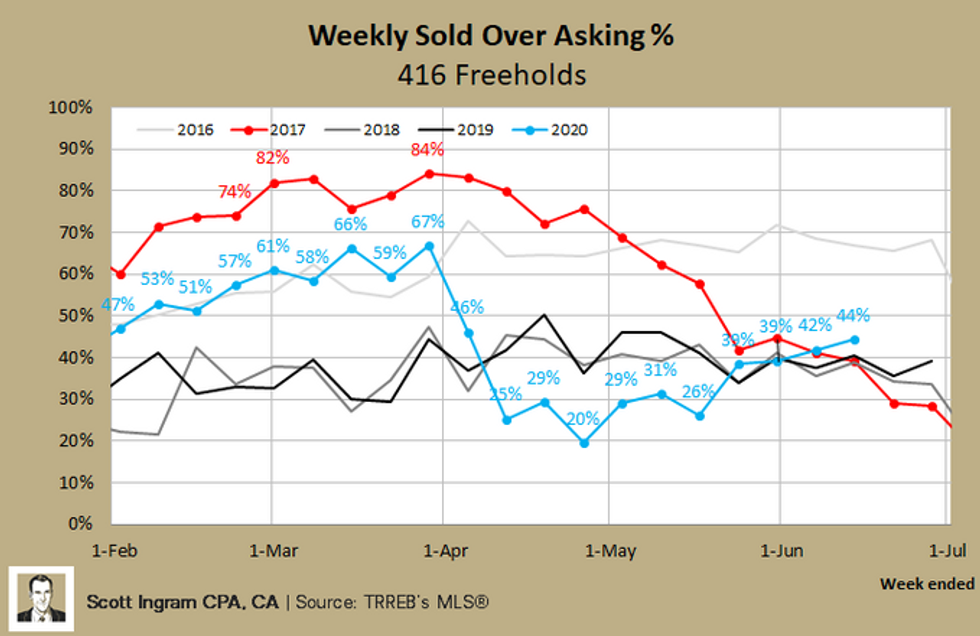Traditionally, spring is the hottest season for Toronto real estate. But, in case you haven't noticed, 2020 has been anything but traditional.
So, as we settle into the official start of summer, perhaps it shouldn't come as a complete surprise that some of June's resale numbers are beginning to compete with previous April and May averages. In other words, we seem to be enjoying a "delayed spring" in Toronto right now, as noted by Scott Ingram, a chartered accountant and sales representative with Century 21 Regal Realty. Inc.
READ: Toronto Approved to Enter Stage 2 of Reopening on Wednesday
Ingram tracks the weekly rates of units sold for over asking in the 416 space, suggesting it’s a good way to measure buyer and seller confidence. Ingram concedes that the stat is not intended to represent an accurate market data point as too many of the properties are “bogus underpriced units” intended to start a bidding war, but rather an indication of where market confidence currently sits.
And, if he's right, buyers are certainly putting a fair amount of confidence into the current market. In fact, for the week ending June 14, freehold homes in Toronto were selling over asking at a 44% clip, the highest percentage for this time of year since 2016's record-breaking summer.

In other words, despite unprecedented job losses and physical distancing measures in place due to COVID-19, the Toronto real estate market remains highly competitive right now.
As you can see from Ingram's data, freeholds in the 416 area consistently average over-asking selling prices. But seven weeks ago, in the middle of April's lows, just 20% of freeholds were going for over asking, while a week ago that number had already more than doubled – increasing for the fourth week in a row and six out of seven weeks total since the end of April.
A simple reason the number of homes sold over asking can be considered a decent gauge for market confidence is, as Ingram surmises, "You're not angling for a bidding war in a dead market." Meaning, if the market isn't hot or heating up, sellers are more likely to price their homes close to fair market value, rather than pricing them below market in an effort to create a bidding war or inspire a bully offer.
Ingram's insights into the Toronto market line up with a study released by Zoocasa last week that dove into CREA's latest monthly data and found that, despite the significant decline in the volume of sales transactions in May, housing market competition conditions across Canada remain similar to 2019. COVID-19 seemed to bring the housing market to a near-standstill in April, but it never did manage to stop it. And June seems intent on making up for lost time.





















